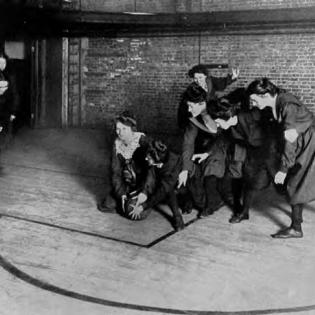Settlement Houses Yesterday and Today
Settlement houses aimed to improve the lives of community members by addressing social challenges and promoting social welfare. In this lesson, we explore how they addressed the needs of the community where government efforts fell short. Many communities still have similar programs.
Learners will know and be able to:
- describe the work and importance of settlement houses.
- state how these needs are addressed by philanthropy today.
- copy of the Settlement House overview (see handout below)
How do communities find solutions for current social challenges where government support may be limited or insufficient?
Instructions
Opening Discussion:
What nonprofit organizations in your community support education, food, housing, and other social services? What do you think makes them nonprofit instead of for-profit business or government organizations?
Read this overview of Settlement Houses and their historical context during the late 19th and early 20th centuries. Read to find out the social challenges faced by immigrants and low-income families in urban areas during this time period.
Discuss:
- What is the role of philanthropy in addressing community needs when the government cannot or will not address them?
- What services were offered by the Settlement Houses that could have been offered by the government?
- How do community-based initiatives address present-day challenges, such as affordable housing, education, or healthcare?
- What might a modern Settlement House look like and provide in order to meet community needs?
What is the relevance of this historical example in addressing current social issues?
Research one of the issue areas addressed by the historic settlement houses. Describe the philanthropic action and how they work with the community they serve. Create a visual with language describing a local program.
Note: "Do nothing for us without us" is an effective attitude for mutual aid, in opposition to a charity "helper/savior" model of philanthropy.
What is one way you can contribute to your community through philanthropy and civic engagement?
